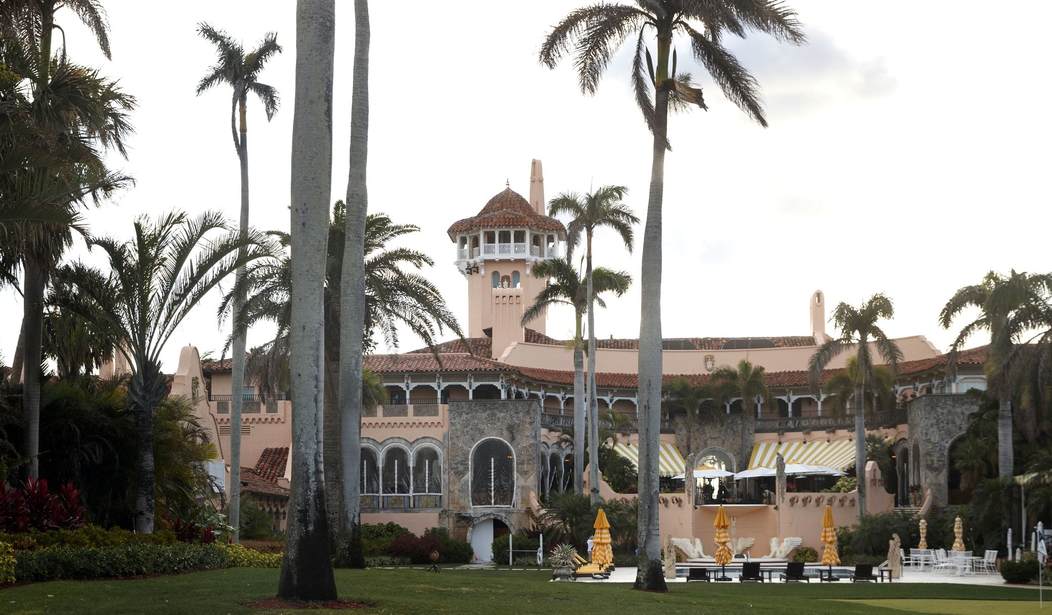One of the big questions that has been circulating about the FBI’s search of Mar-a-Lago is why the government decided to take that step given reports that the DOJ had as recently as June help cordial and apparently productive meetings with Trump’s attorneys. Today there’s some new information on that front but whether it makes the story better or worse seems to be in the eye of the beholder.
Today, the site Just the News was first to report that the June meeting at Mar-a-Lago involved a subpoena for documents. Their report emphasized that Trump and his attorneys were cooperative in response to that subpoena.
Two months before his Florida home was raided by the FBI, former President Donald Trump secretly received a grand jury subpoena for classified documents belonging to the National Archives, and voluntarily cooperated by turning over responsive evidence, surrendering security surveillance footage and allowing federal agents and a senior Justice Department lawyer to tour his private storage locker, according to a half dozen people familiar with the incident…
Trump signaled his full cooperation, telling the agents and prosecutor, “Look, whatever you need let us know,” according to two eyewitnesses. The federal team was surprised by the president’s invitation and asked for an immediate favor: to see the 6-foot-by-10-foot storage locker where his clothes, shoes, documents and mementos from his presidency were stored at the compound.
Given Trump’s instruction, the president’s lawyers complied and allowed the search by the FBI before the entourage left cordially.
That account of the June meeting basically matches with the one the Wall Street Journal published yesterday. So the question becomes this: If Trump cooperated with the subpoena and gave investigators access to what they wanted, why escalate things to a search warrant?
This afternoon, the NY Times has published its own take on the new information about the subpoena which frames thing in a somewhat different light.
The subpoena suggests that the Justice Department tried methods short of a search warrant to account for the material before taking the politically explosive step of sending F.B.I. agents unannounced to Mar-a-Lago, Mr. Trump’s home and members-only club.
Two people briefed on the classified documents that investigators believe remained at Mar-a-Lago indicated that they were so sensitive in nature, and related to national security, that the Justice Department had to act.
First, it’s interesting that the Times described the search warrant as “politically explosive.” And because that was entirely predictable there has to be some good reason for it. And that’s what we get in the next paragraph, a vague claim that there were highly sensitive documents which forced the Department to act. What were those documents? The Times doesn’t know but later on does say the boxes collected by the FBI were mostly empty.
The search warrant was broad, allowing the agents to investigate all areas of the club where classified materials might have been stored. They went through the basement, Mr. Trump’s office and at least part of his residence at the club.
After hours of searching, they left with several boxes that were not filled to the brim and in at least some cases simply contained sealed envelopes of material that the agents took and were otherwise empty, one person familiar with the search said.
The person said that the F.B.I. left behind a manifest of what was taken, which was two pages long.
What we still don’t know is whether that manifest was full of the top secret national security docs the National Archives so desperately needed to collect of if it’s more generic, lightly classified material that could have been collected through contacting Trump’s attorneys.
What’s still missing from this story is any clear suggestion that Trump or his people ever said no or refused to hand over anything they were asked for. At this point I could see this story going either way. Maybe there was a good reason for the warrant. Maybe Trump was trying to hold on to something he knew he couldn’t retain and all other efforts to get it back had failed.
On the other hand, nothing I’ve see so far really rules out the possibility that the National Archives saw this as an opportunity to score some resistance points by going after Trump in a way they wouldn’t have gone after, say, Hillary Clinton. We’re back to the old problem of the Trump era, i.e. we’re playing a game of telephone in which there are two unreliable narrators.
The only thing I’m fairly certain of is that there’s not enough goodwill that anyone is going to take the FBI’s, the DOJ’s or Trump’s word for what happened. If Trump really was cooperating then releasing the contents of the warrant and the manifest of documents seized won’t hurt his case. Why not just leak it? If the DOJ really had a pressing need for these documents and was convinced they could only get them via a search warrant, tell us why. Maybe the reason we’re only getting dribs and drabs of this story is that neither side is completely telling the truth.








Join the conversation as a VIP Member